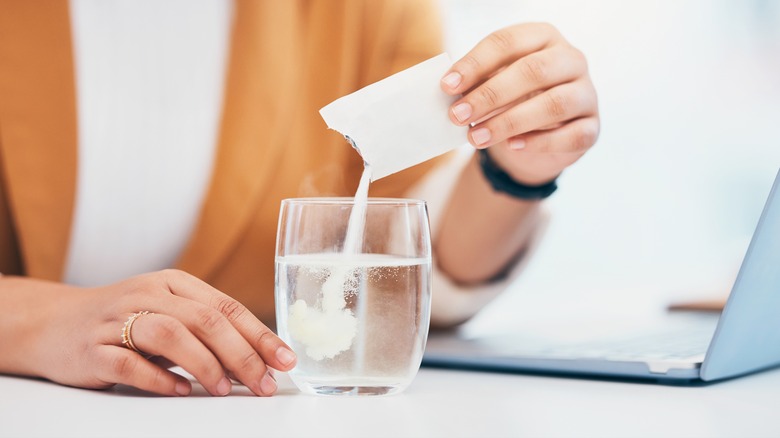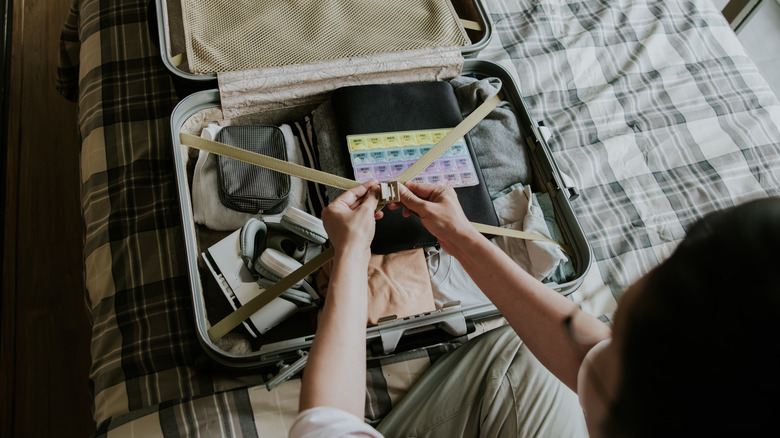Be Cautious Bringing This Type Of Over-The-Counter Medicine Through TSA
Along with your phone and a fresh change of clothes, medicine is one of the most important things to pack when traveling. Over-the-counter staples can ward off a flight-induced headache or tummy troubles from trying new foods, while prescriptions are crucial for treating more severe health conditions.
Thankfully, the Transportation Security Administration (TSA) knows this and is generally accepting of various types of medicines. As the agency explains on its website, medicine is required to undergo X-ray screening just like any other carry-on item. As long as the drugs are medically necessary, TSA agents will typically allow pills, tablets, and other medication types through security without questioning. Insulin, medicated syrups, and other liquids are even exempt from TSA's liquid rules.
However, powdered medicines, such as some laxatives, can be a little trickier to take through airport security. If you're not careful, TSA could confiscate your powdered remedies, leaving you scrambling to find a replacement at your destination.
Why do powders get flagged by TSA?
Miralax and other powdered over-the-counter medicines may seem completely harmless, but to a TSA agent, they can closely resemble a serious security threat. Just like with certain liquids, some powdered substances can be used to create explosives. In the past, terrorist plots have involved bringing powdered chemicals on a plane and setting them off mid-flight.
In response, some security agencies have restricted powders in carry-on luggage, including medicines in powdered form. In 2023, Indian airports banned talcum powders in passenger handbags altogether.
TSA in the U.S. still allows powders through its security checkpoints in most cases (as per its website), but note that carrying large quantities of powdered medication could result in additional airport screening. This can also impact travelers flying directly into the U.S. from another country, so think twice before stocking up on powdered prescriptions or that local pulverized remedy that worked wonders during your trip.
How to pack your powdered medicine
If you rely on Miralax or another powdered product, don't worry — you can still bring it with you on vacation. According to TSA, the best way to avoid hassle is to keep the item in your checked baggage. This way, you won't have to deal with additional screening in an already long security line.
If you're only packing a carry-on bag, expect to have the medicine inspected during routine security screenings. It's never a good idea to bring medicine in a non-labeled bottle through TSA; the same goes for over-the-counter powders. Keep the product in its original packaging and, when possible, travel with an unopened container (though note that a TSA agent may break the seal to inspect the contents).
Opting for a travel-sized package can also be helpful. TSA's rules state that powders greater than 12 ounces are subject to additional screening, while smaller quantities can typically pass through the X-ray machine without further testing. If you decide to travel with a large amount of medicine, help speed up the screening process by removing the item from your bag and notifying a security officer at the airport checkpoint.


